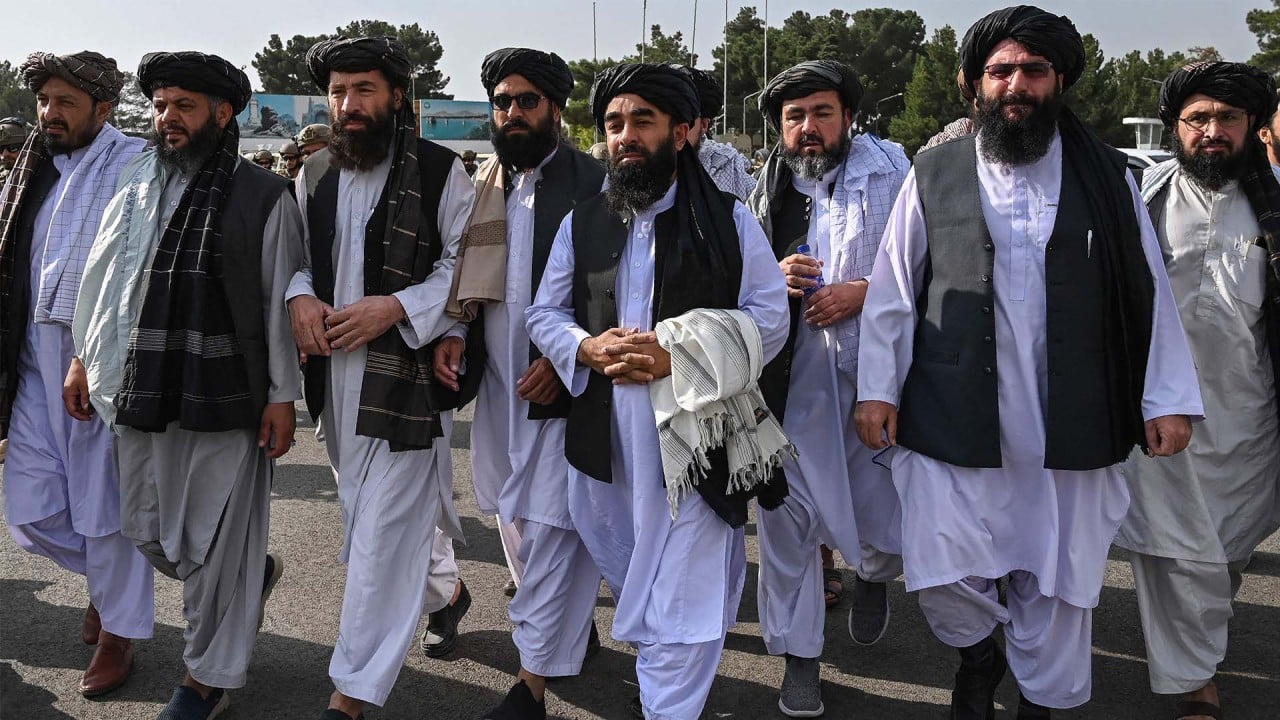
Afghanistan ‘humanitarian catastrophe’ looms after Taliban victory
- UN chief urges countries provide emergency funding for Afghanistan after departure of US forces
- Almost half of the population – 18 million people – need urgent humanitarian assistance to survive
The United Nations chief urged all nations to help the people of Afghanistan “in their darkest hour of need”, saying that almost half the population needs humanitarian assistance to survive and the country faces the threat of basic services collapsing completely.
Secretary-General Antonio Guterres expressed “grave concern at the deepening humanitarian crisis in the country” in a statement on the first day of Taliban rule after the withdrawal of the last US forces from Afghanistan.
He offered some grim statistics of the looming “humanitarian catastrophe”: 18 million Afghans need aid to survive, one in three don’t know where their next meal will come from, over half of all children under age of five were expected to become “acutely malnourished” in the next year, and every day people are losing access to basic goods and services.
“Amid a severe drought and with harsh winter conditions on the horizon, extra food, shelter and health supplies must be urgently fast-tracked into the country,” Guterres said.
UN spokesman Stephane Dujarric said the current US$1.3 billion UN humanitarian appeal for Afghanistan was only 39 per cent funded. Guterres said a new emergency appeal for the next four months was expected next week.

02:18
Taliban declares victory from Kabul airport after last US troops leave Afghanistan
“For us,” Dujarric said, “the day after is just another day in Kabul. We’ve been present in Afghanistan for over 60 years, and we are remaining and standing shoulder to shoulder with the Afghan people.”
He said a UN assessment team went out in Kabul on Tuesday. While aid operations have not been able to resume in the capital, he said, a World Health Organization plane with supplies was able to land in Mazar-i-Sharif in the north on Monday and the World Food Program has also been able to resume operations in the country.
With the Taliban now in control of the country, Dujarric said the secretary general would like to see, and hopes the international community would like to see “the formation of an inclusive government, full respect for human rights … especially when it comes to women, and to ensure that the hard won gains of especially the last two decades do not evaporate, and ensuring that Afghanistan is not used as a base for terrorism”.
As Afghanistan embarks on a new future, Pramila Patten, the acting head of UN Women, urged the Taliban to reaffirm their commitment to comply with Afghanistan’s 2004 constitution and international treaties that guarantee equality to all citizens, and to guarantee “the full and equal participation of women in the political and decision-making processes”.

Patten said in a statement the hard-won gains that Afghan women’s rights activists have fought for “cannot be reversed or rolled back”.
“Urgent action is needed now to ensure the full participation of women in the public and political life of Afghanistan,” she said, and the Taliban must ensure that women are protected from gender-based threats and attacks, “which violate their rights and impede their effective participation”.
The Taliban have adopted a more moderate tone since their military victory – promising that women could work and go to school within the bounds of sharia law, as well as amnesty for all their former Afghan foes and good ties with the international community.
Taliban vows to ban heroin. But can Afghanistan survive without it?
In a joint statement, Virginia Gamba, the UN special representative for children and armed conflict, and Najat Maalla M’jid, the special representative on violence against children, said at least 45 per cent of the Afghan population was younger than 15.
They called on the Taliban and other parties in Afghanistan to respect the dignity and human rights of all Afghans, including boys and girls.

On Tuesday, the Taliban called for friendly ties with the US and indicated they were close to announcing details of a new government.
“The Islamic Emirate wants a good and diplomatic relationship with the Americans,” Zabihullah Mujahed, the Taliban’s main spokesman, told reporters from the Hamid Karzai International Airport, which was the last place under American control.
The Biden administration has said US relations with the group was contingent on its behaviour.
Last week, the United States issued a license authorising it and its partners to continue to facilitate humanitarian aid in Afghanistan, a Treasury Department official told Reuters.
Afghanistan faces economic cataclysm with no dollars coming in
The specific license, issued by the Treasury Department last Wednesday, authorises the US government and its contractors to support humanitarian assistance to people in Afghanistan, including the delivery of food and medicine, despite US sanctions on the Taliban.
The license, which expires on March 1, 2022, comes amid concerns that Washington’s sanctions on the Taliban could speed an unfolding humanitarian crisis in the country.
“This is targeted humanitarian assistance designed to help the people of Afghanistan,” the official said, adding the assistance was not going to Taliban authorities.
Specific licenses are generally not made public by the Treasury.
Biden’s administration has said it was committed to allowing humanitarian work in Afghanistan to continue despite Washington’s designation of the Taliban as a Specially Designated Global Terrorist.
The sanctions freeze any US assets of the Islamist militant group and bar Americans from dealing with them, including the contribution of funds, goods or services. Those sanctions remain in place, the official said.
Associated Press, Bloomberg and Reuters
